| Umělec magazine 2003/3 >> Editorial | List of all editions. | ||||||||||||
|
|||||||||||||
EditorialUmělec magazine 2003/301.03.2003 Jiří Ptáček | editorial | en cs |
|||||||||||||
|
The Czech art scene has its own limitations, which have yet to be dissolved, and the desire or ability to dissolve them is still lacking. The best way to discover this is to go abroad and represent the domestic culture; all it takes is to be asked a few question by people who think you know more about it than they do. Near the end of November I went to Berlin with the intention of writing about the exhibition Things You Don’t Know (pp. ) Opening night was going along peacefully when a thin, nimble man with a goatee pounced on me. His name was ……., he was from Petersburg and curious as hell. His wonderfully soft Russian accent bubbled out in every other English word he muttered, and it soon came out that he stood by hardcore leftist art. He shoved into my hands two newspaper copies in which he and his cronies lash out at the non-socialist world of art praxis and call for more gutsy action. In his interrogation about Czechs, his desire to cooperate with those who understand his efforts became apparent. But with every answer I gave him he fell deeper into disillusionment. Not only is Czech engaged art still in its infancy, it still ostentatiously skates along political lines with the emblem of individualism on its jersey. Not counting the post-communist agitprop by the posthumous children of normalization, nary a soul fits into the category of “leftist artist.”
But… he wasn’t the first to ask me about engaged art in this country. Questions of this sort would not have been a surprise in the Balkans, but the Germans, Austrians, and Hungarians were all prodding me for answers. It’s as if on the one hand social criticism is expected of us, but on the other, the expectation itself shows us that we don’t feel the need to form this dimension of art in the Czech Republic. But just to make sure, so as not to prolong the blunder, I ask: do you know anyone? Umělec is supposed to be a place of confrontation. Look for provocation in the short commentaries on the Jindřich Chalupecký Award (pp.), Jan Šerých’s blow-up over the “revitalizing” dump of Czech paintings in Perfect Tense (pp.) and Jana Kalinová’s sharply in tune society column (pp.) as she thinks back to the Prague Biennial, a subject we covered two issues ago — condemning it as much as anyone else, but let it go. Then I recently opened the Slovak magazine Profil and read two other sniper blasts, one taken at the Biennale, the other at the parallel exhibition Nejmladší. The arrogant reticent bullet-proof attitude of the curators, with General Director of the National Gallery Milan Knížák at the head, gives me goose bumps. When will these authorities finally admit that the “high point of the season” was nothing more than an organizational debacle? However, the core of this issue has evolved into a double fairytale. The first intends to reestablish harmony through subjective narration on the verge of the visionary, though sometimes the impression is more ostentatious than authentic (pp.). The second arises and lingers as a social necessity and construction among all the historic illusions and personal experiences. This time we have given space to Kosovo (pp.), which only recently established itself for the surrounding world as an individual artistic entity. It’s enthusiasm and radicalism are trademark. Thanks goes out to the author of this section, Sezgin Boynik. Kosovar journalist Petrit Hoxha and, in a different way, American Romany activist Paul Polansky fill the section out. We mixed in Serbian art, not because it is supposed to be standing on the other side of the barricade, but because the art of both countries faces similar experiences, and it returns to them, and the acute history of the region finds itself bound by nearly invisible but powerful threads. I’m sure we flubbed the whole thing, but we feel it’s more important to show all the cards, because in a fair game you should know exactly what you are playing with.
01.03.2003
Recommended articles
|
|||||||||||||
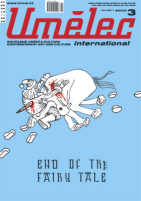
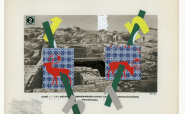
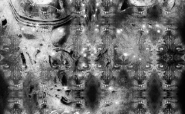
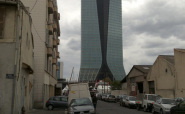
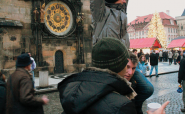
Comments
There are currently no comments.Add new comment